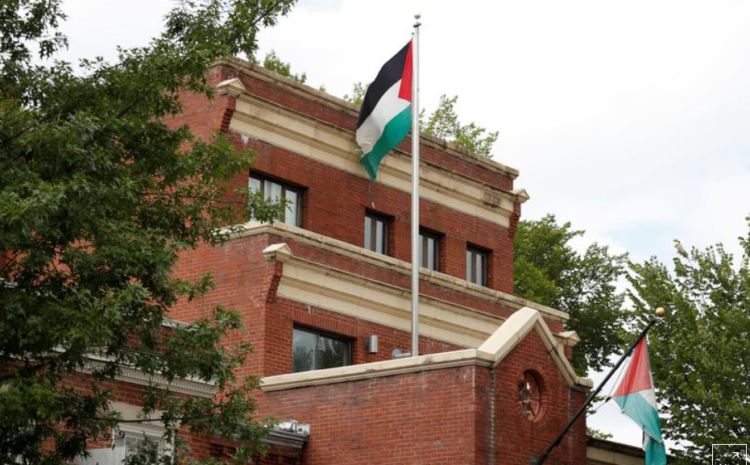JERUSALEM/WASHINGTON (Reuters) – U.S. President Joe Biden’s plan to work to reopen the Palestinians’ diplomatic mission in Washington could be held up over a law that exposes Palestinian officials to U.S. anti-terror lawsuits, officials and advisers to the Palestinians say.
The Biden administration hopes to repair relations with the Palestinians after a sharp deterioration under former President Donald Trump, who closed the Palestine Liberation Organization’s Washington office in 2018 and cut millions of dollars in aid to the West Bank and Gaza Strip.
But under an anti-terror amendment passed by Congress and signed into law by Trump in 2019, the Palestinians would become liable for $655.5 million in financial penalties against them in U.S. courts if they open an office in the United States.
There are also questions about how Biden will fulfil a pledge to resume economic aid to the Palestinians. The Taylor Force Act, passed by Congress in 2018, restricts some aid until the Palestinians end payments to people jailed by Israel over violent crimes, among other conditions.
Speaking to the United Nations Security Council on Tuesday, Acting U.S. envoy Richard Mills said Washington “intended to take steps to reopen diplomatic missions that were closed for the last U.S. administration”, without giving a timeline.
The legal hurdles underscore the range of challenges Biden may face in restoring ties with the Palestinians and reversing actions taken by Trump, who overturned longtime U.S. Middle East policy with a series of pro-Israel steps including ending U.S. opposition to Israeli settlements in the West Bank.
Palestinians say his actions discredited the longtime U.S. role as chief mediator in their conflict with Israel and further dimmed any chance of a peace deal envisaging a Palestinian state in Israeli-occupied territory.
Palestinian leaders have welcomed Biden’s pledges of rapprochement, but while he can reverse some measures through executive orders, others involve laws passed by Congress and are not as easily changed.
Asked for comment, a U.S. State Department official told Reuters: “In administering aid, the Biden-Harris Administration will fully comply with U.S. law including the Taylor Force Act.”
The official did not comment on whether the Biden administration would look into working around the anti-terror amendment to help rebuild relations with the Palestinians.
TALKS ON A ‘FIX’
Talks are ongoing with the administration and Congress about finding a “fix” to the amendment that would allow the PLO mission to reopen, an American legal adviser to the Palestinians said, adding that the Palestinians “don’t have the money to pay” the financial claims against them.
Palestinian officials declined to comment.
A Biden adviser told Reuters just before the Nov. 3 election that Biden would seek to reopen the PLO mission to Washington but added: “There is a law that could make that more challenging.”
The anti-terror amendment makes the Palestinians liable for the hefty financial penalty that a U.S. jury awarded against them if they establish or maintain any facilities in the United States, conduct activity on behalf of the PLO or the Palestinian Authority, or make payments to Palestinians imprisoned over violent crimes against Americans, among other conditions.
The jury award stems from lawsuits by 11 American families who sought to hold the PA and PLO liable for shootings and bombings by between 2002 and 2004 in Jerusalem that killed 33 people, including several Americans.
Palestinian leaders have condemned the attacks and blamed them on rogue individuals.
But the U.S. Supreme Court in 2018 refused to consider awarding those claims, upholding a lower court finding that there was no jurisdiction for attacks outside U.S. territory.
Reporting by Rami Ayyub in Jerusalem and Matt Spetalnick in Washington; Editing by Mark Heinrich
Our Standards: The Thomson Reuters Trust Principles

